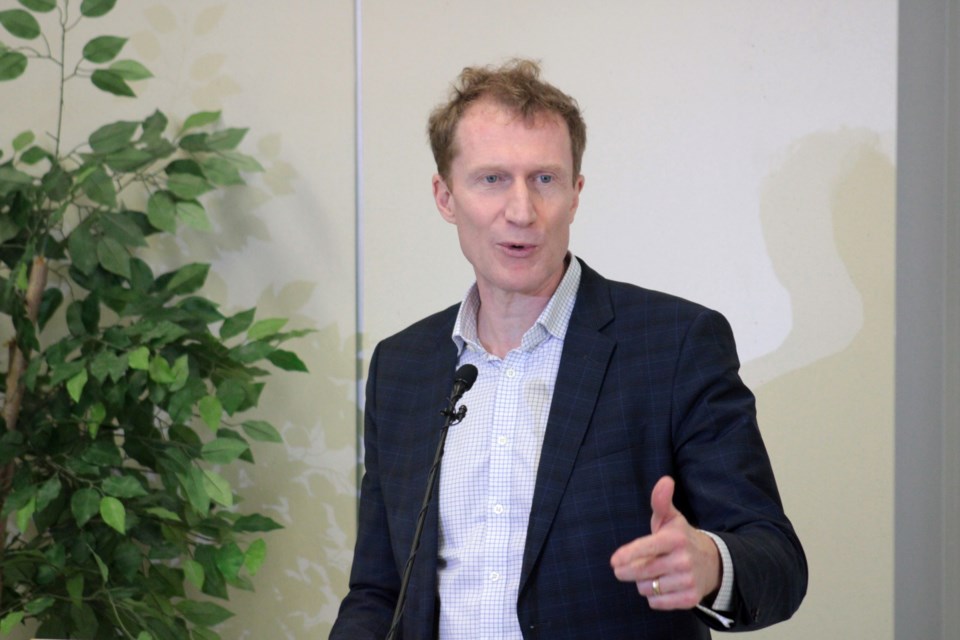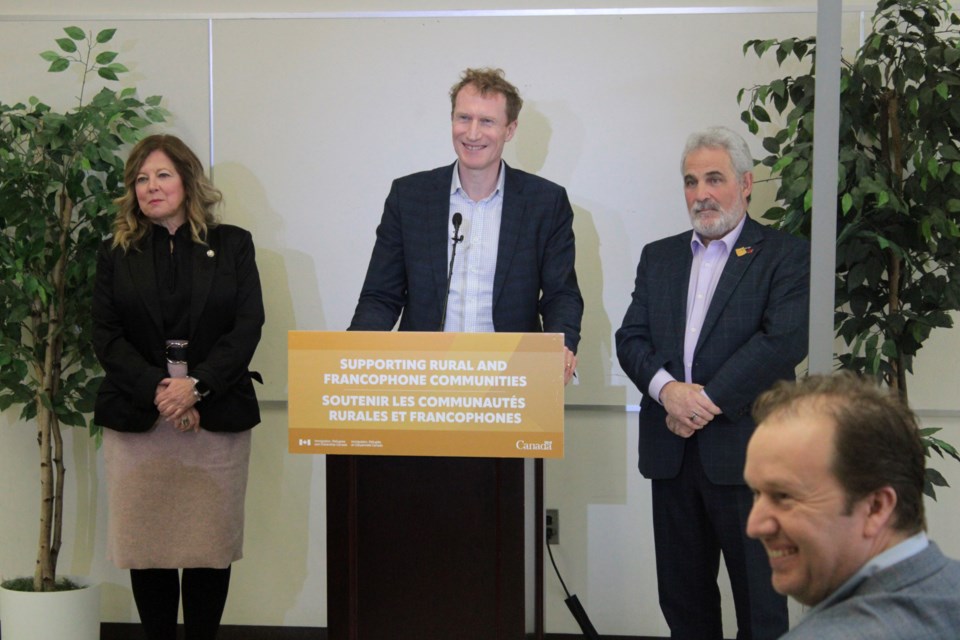The Rural and Northern Immigration Pilot (RNIP) is being made permanent.
This, Immigration, Refugees and Citizenship Minister Marc Miller told a Sudbury audience, is in response to the advocacy and support from affected communities such as Greater Sudbury.
“You’re clapping for yourselves,” he told the audience during a media conference at the Spectrum Group offices in Sudbury on Wednesday.
The telecommunications company’s owner, Geoff Hatton, is chair of the Greater Sudbury Chamber of Commerce, and said 20 per cent of their staff of 100 people are immigrants.

Making the RNIP permanent has been a longstanding point of advocacy on the part of the Greater Sudbury Chamber of Commerce, Greater Sudbury city council and local Liberal MPs.
In a media release accompanying today’s announcement, it’s noted that 4,595 newcomers received permanent residency through the RNIP since it launched five years ago.
This includes 11 communities in Northern Ontario and Western Canada, of which Greater Sudbury is one.
Locally, the program accepted 11 applicants in 2020, 84 in 2021, 265 in 2022 and 524 in 2023.
The program is “key” to Greater Sudbury city council’s goal of hitting a population of 200,000 by 2050, Mayor Paul Lefebvre told Sudbury.com following today’s announcement, adding that making it permanent has been the top priority in conversations with the federal government.
“The jobs are here,” he said, crediting the RNIP program’s success to it being employer-led.
“Employers apply for these positions because they’ve identified an individual either that’s already here and doesn’t have permanent residency status, or from another country and wants to move here,” he said.
It’s “not just a one and done,” he said, adding that the employer is responsible for their success.
The success rate locally, described as residents who receive permanent residency and remain in Greater Sudbury, is more than 90 per cent, he said.
“There’s a path to employment, and (the RNIP program) offers these opportunities, more people will want to come here and take on these jobs and opportunities as well.”
During his presentation, Miller said the RNIP program will face some fine-tuning to help hash out gaps identified during its pilot stage.
“We want to make sure that the need, the desire, attaches with it some responsibility,” he said.
“These are larger conversations that have to do with provinces and the importance of every community that says they want people to make sure of the responsibility that comes with it.”
The roles and responsibilities between sponsors, communities and the federal government need to be clearly defined, he said, describing the goal as “making sure newcomers are properly welcomed.”

Infrastructure to accommodate growing populations is also important, such as housing.
With a growing population comes the need for more housing, and Greater Sudbury’s rental vacancy rate is currently hovering at around 1.7 per cent.
There’s a role for both the federal government and the province to ensure that supply is increased, he said, adding that although the federal government has made recent strides, “Has it been enough? Certainly not.”
The affordable side of the market needs to be prioritized, he said, noting this as a more important variable than vacancy rates.
One recent announcement on this front came last month, when the federal government pledged $73 million for a 347-unit downtown apartment building, of which $70 million is a repayable loan.
Wednesday’s announcement also included the introduction of a Francophone Community Immigration Pilot, which was not fully defined.
This, a media release noted, has been “modelled on the success of the RNIP and as part of our Francophone Immigration Policy,” and will launch this autumn.
“The pilot will focus on increasing the number of French-speaking newcomers settling in Francophone minority communities outside of Quebec and will help ensure the economic development of Francophone minority communities, while also helping to restore and increase their demographic weight.”
If interested, Greater Sudbury would need to apply for the Francophone Community Immigration Pilot, as they will also need to do with the next incarnation of the RNIP.
“With this announcement today we have the potential of doubling the number of people that will be able to welcome according to the parameters of the programs,” Miller said.
The Minister later added, “there’s no reason to believe” Greater Sudbury’s application for the permanent RNIP program will not be successful.
Tyler Clarke covers city hall and political affairs for Sudbury.com.
